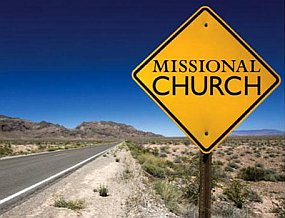I’ve been listening to Unbelievable, a British podcast that pits Christians and atheists against each other on popular topics. Often, the battle is purely head-to-head, with no other topic than why atheism or why Christianity is true or not.
Here in the States, we had a slow news cycle leading up to the Olympics, so the Ken Ham and Bill Nye debate took on a life of its own, with even the secular press touting the “event.”
Urg.
I say this because all this logic and carefully worded argumentation misses the point. While I can see atheists not understanding how the point is lost, that Christians can’t see beyond is most troubling and says much about the state of the Church in the West.
What Christians forget is what places the Christian Church above all other religious groups and systems, including atheism. Christians believe God put His Spirit into each believer, which both empowers and grants the ability to experience true relationship with God through Jesus.
No Spirit, no Church. End of story.
And yet Christians almost never go to the Spirit when confronting atheism.
 All the reasoned logic in the world is unlikely to sway modern skeptics. We can appeal to Paul’s example at the Areopagus, but what was new to the ears of the Stoics and Epicureans in Paul’s day has had nearly 2,000 years to accumulate rebuttals. Reason alone cannot be our primary weapon.
All the reasoned logic in the world is unlikely to sway modern skeptics. We can appeal to Paul’s example at the Areopagus, but what was new to the ears of the Stoics and Epicureans in Paul’s day has had nearly 2,000 years to accumulate rebuttals. Reason alone cannot be our primary weapon.
While the Bible is God’s special revelation to mankind and contains what we need to know to have faith and to live the Christian life, many do not acknowledge it as such. To any who saw the Ham and Nye debate, Ham’s repeated returns to Scripture fell on Nye’s deaf ears. This is NOT to say the Bible as God’s Word is inadequate in some way, only that many have inoculated themselves against it when it is used alone.
But there is a word that can stop an atheist argument in its tracks. Why Christians today don’t use it is one of the great losses of our generation.
That word? The word of knowledge.
Yes, the charismatic gift.
A Christian and an atheist arguing presuppositions about the origin of matter can dispense with all the bilateral systematic dismantling if the Christian would simply say, “Your mother told you when you were 13 that she wished she had never conceived you , and you struggle daily to recover from rejection, don’t you?” Or how about “God revealed to me that you’ve been cheating on your spouse for the last two years”?
Any Christian out there wonder if that would change the direction of the debate?
If we’re talking whether God exists or not, connecting with the supernatural is the natural course of argument. A spoken word of knowledge immediately dismantles all opposition. Immediately. People who claim God does not exist must now explain that word of knowledge. Let them try. They won’t succeed. NOW who is on the defensive?
See, God intended us to be more than a Word Church. He intended us to be a Word + Power Church.
In the sidebar of this blog is an ad for Gospel for Asia. When you read the testimonies of the missionaries involved in that organization, nearly all came from non-Christian homes, and nearly all had some power encounter because of a missionary coming into their homes and bringing a miracle of some kind. Supernatural healing, deliverance, words of knowledge, words of wisdom, whatever—the Word was accompanied by a Spirit-filled believer operating in supernatural Power. The result was faith.
You see, the arguments against the Lord went dead in the face of God working through His people in power.
Is it any wonder why atheism has revived in the age of a Western Church that more likely than not DENIES the operation of the charismata? And is it any wonder that the Church is moving forward in leaps and bounds in those places where Christians place no such restrictions on the Spirit moving through charismatic gifts?
American Church, are you listening?
Get the gifts moving again and see the arguments against God crumble. Because they will.
And one more thing…
We always like to say that Christianity is not a religion but a relationship. Why then do we Christians never press the relationship reality when we debate atheists? Why is it always a battle of logic? If knowing Christ is eternal life and relationship with Him is the cornerstone of our Faith, why do Christians never bring up this living relationship with Christ when talking with atheists? Ravi Zacharias is about the only apologist I ever hear who gets to the heart of relationship with Christ when discussing the uniqueness of Christianity and its superiority. More of us need to talk about our vital relationship with Christ with our atheist friends.
For too long the discussion has been from our heads. It’s time to take it back to relationship with Christ and to Word + Power. Because that’s what makes Christianity the only true answer.

 Serving the poor is great. Healing the sick is a beautiful calling. Living simply is a must. Putting the mission of Jesus central in all we do is wonderful.
Serving the poor is great. Healing the sick is a beautiful calling. Living simply is a must. Putting the mission of Jesus central in all we do is wonderful.